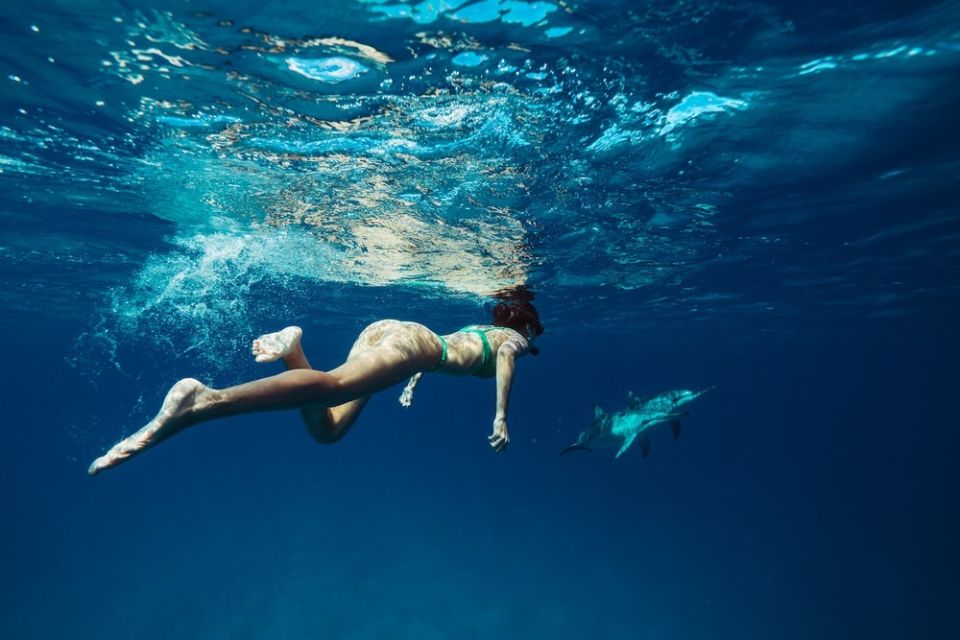How swimming helps people with OCD
12/08/2022 | Written by Nikos Kaskaras in Special Needs
Did you know that more than 500.000 people in Australia suffer from OCD? What’s more important: Do you know that swimming can drastically help them deal with their issue? Science and real-life prove it.
The Australian paradigm of OCD and swimming
Catlin is a young student living in Melbourne. She lives with her caring parents, goes to school every day and seems perfectly fit for her environment. Last year though Catlin heard something that could change her life: She was diagnosed with OCD (Obsessive-Compulsive Disorder). In her own words, her OCD was progressing slowly over the years and reached a point where it got out of control. Catlin’s disorder has to do with cleanliness to the point where she developed dermatitis due to the constant cleaning of her hands. The emergence of Covid-19, the pandemic that followed and the consequent lockdowns worsened her situation as she became more isolated. Her return to school after the end of lockdowns found Catlin in a worse condition, sanitising all the time. Even a visit to a psychologist did not help her. What ‘saved’ Catlin? She started swimming. She found such comfort in the activity that she became a competitive swimmer!
“I'm in the pool four to five times a week – and it's saved me”, as she puts it vividly.
How swimming helps people with OCD
Before we see in more detail how swimming helps people with ODC, it is useful to understand what OCD is about. The etymology of the disease determines its essential symptoms. Obsessions are repetitive images or thoughts that come into the mind unwillingly whereas compulsions are behaviours or rituals that a person does repetitively and compulsively. OCD produces intense feelings of anxiety, thus affecting the daily lives of people suffering from this disorder.
Swimming is ideal for helping people with OCD find stability and become more functional through their daily activities and obligations. How does it help? Let’s hear Catlin’s own words to figure it out: “There's something about being in the water. Diving into the cold pool and feeling a rush of adrenaline. It's my sort of meditation.” The spontaneous flow of her words speaks for itself. Indeed, the repetitive nature of swimming due to the harmonic mechanical movement of the body as well as the refreshing feelings that water produces are ideal “matchups” for the symptoms of OCD. Catlin’s words leave no room for misunderstanding: “I'm in the pool four to five times a week – and it's saved me.’
The psychological benefits of swimming
There’s a fascinating study that provides novel evidence for the positive psychological effects of swimming. The conclusion of the study, as you can see in its title, is that swimming exercise attenuates psychological dependence. It specifically refers to the reduction of certain conditions: Depression, OCD, and anxiety. This study is another scientific proof of the mental and psychological benefits of swimming. We could summarise those benefits to the following:
- Swimming improves mood
- Swimming enhances cognitive functions
- Swimming increases positive feelings
- Swimming decreases feelings of depression and anxiety
- Swimming increases self-esteem and positivity
- Swimming improves social skills
- Swimming improves sleep patterns
A perfect summary of the benefits of swimming comes again from Catlin describing her feelings when she was entering the swimming pool: “Everything that was freaking me out would leave my mind.” It cannot be described in a better way. This is what swimming offers to all those who practice it. This is the broader good that swimming does for all of us. Regardless of the physical or mental state, we are in, swimming can be a remedy, salvation, the means for reaching tranquillity and peace of mind. Such gifts are priceless for all!